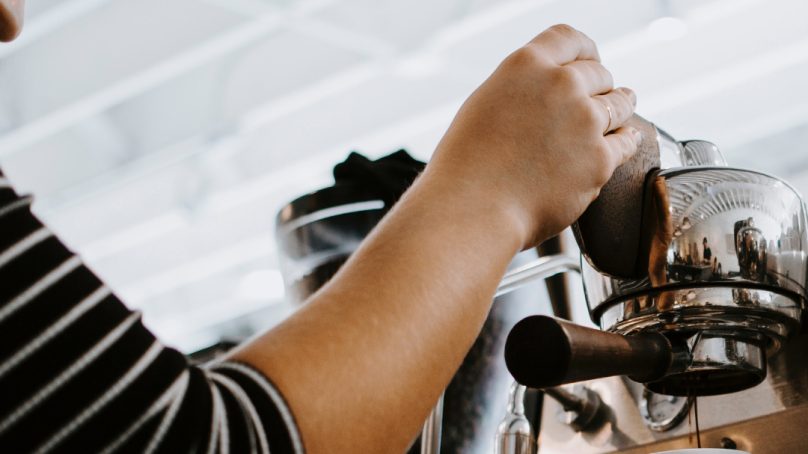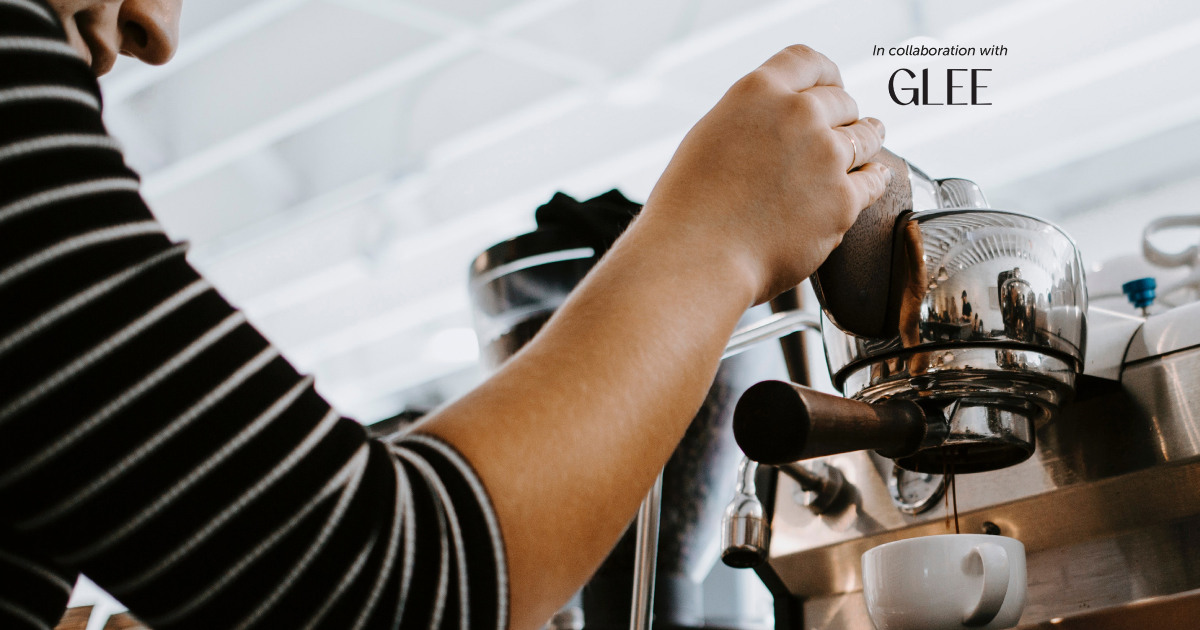With specialty coffee being one of the fastest-growing markets in the world, Natalya Latypova, managing director of Glee Hospitality Solutions, explores this growing trend and the equipment that’s making waves across the market.


Coffee is arguably the most culturally significant and heavily consumed beverage in the world after water. Historically, coffee cultivation and trade began in the Middle East, sometime around the 15th century. Within a century, it had spread to North Africa and reached Turkey. By the 17th century, the earliest coffee shops emerged in Europe, and slowly, the trend reached North America.
In our modern world, over 2.25 billion cups of coffee are consumed every day. According to the International Coffee Association, 66 percent of Americans drink coffee, putting it ahead of any other prepared beverage consumed in the country.
Trends
Global coffee culture has witnessed a fusion of several different trends — such as artisan Italian cappuccinos, viral concoctions like Dalgone coffee and even guano-based coffee beans from Indonesia — hitting the mainstream. The growing demand for specialty coffee has, in turn, spurred a rise in the quality and versatility of coffee machines used by coffee shops to cater to this evolving global trend.
The coffee boom
Coffee concepts are booming worldwide.
According to Brainy Insights, the global specialty coffee market is expected to grow from USD 53.67 billion in 2021 to USD 152.69 billion by 2030, a CAGR of 12.32 percent. Increasing American specialty choices and the popularity of specialty coffee among customers are expected to have a positive impact on demand. In light of these factors, a higher quality of machine and grinder is required to handle the processing of these specialty coffee beans.
Quality coffee equipment is one of the main proponents in the trinity of creating a good cup of coffee —alongside water quality and the skills of the barista. According to a report published by Mordor Intelligence, the coffee machine market was valued at USD 5.11 billion in 2020, and is expected to reach USD 6.36 billion by 2026, resulting in a CAGR of more than 4.5 percent during the forecast period.
Coffee machine champions
Brands such as La Marzocco, Synesso and Slayer are market leaders when it comes to specialty coffee machines.
Indeed, these names have served millions of customers at one or more of the world’s coffee-shop powerhouses, including Starbucks and Costa Coffee. Customization has also become trendy, with companies like La Marzocco offering a wide range of colors and finishes to suit the image and style of the coffee shop. In terms of design elements, brands such as Faema are producing more retro-classical machines that many coffee houses are now seeking to complement their own individual style and aesthetic. Other companies that have capitalized on the unique design aspect include Mavam and Modbar, a firm that has focused on its built-in counter and under-counter coffee machine ranges. These machines follow the trend of clean lines and minimalistic interior, often blending into the counter.
Manual brew
It should be noted that some coffee shops have opted for the manual brew process, with progressive trends observed in this niche as well. Manual brewing is a traditionally time-consuming and technical process, often requiring excellent barista skills. When placed in the environment of a busy coffee shop with a high volume of clientele, it can sometimes prove challenging for coffee shops to strike a balance between volume and consistency, as every manually brewed cup takes in excess of five minutes to be prepared correctly. However, companies such as Poursteady have provided solutions in this arena by developing machine systems that can brew up to five cups simultaneously, dramatically increasing the output quota and reducing the total waiting time.
More than the brew
We must acknowledge the fact that brewing is only one aspect of the entire process, and additional steps, such as bean grinding, are also as important for the final product. Coffee shops can achieve a better grade product by investing in quality grinders and premium coffee grinder suppliers, such as the Mahlkonig and Victoria Arduino product ranges. For those seeking a more affordable range, the Italian company Eureka boasts a vast product range that can cater to every single coffee shop , whatever their budget.
To conclude, the surge in demand for specialty coffee has ignited an industry that understands the intricacies of the specialty coffee brewing process. Every step, from grinding to brewing and final presentation, is supported by a host of machines that can extract the full potential of the final brewed product. Coffee houses are now in a position to engage with a global supply market that can provide the perfect machine to match their volume requirements, interior design aspects and quality control.
Whether operating as a global chain or local specialty barista, the standard of coffee machines can be individually tailored to maximize the customer experience at every stage. Coffee shops will acquire coffee machines that are trending at their respective level, and if executed correctly, they can provide a product/level of service that is in sync with both client demand and B2B technology.

Managing Director
Glee Hospitality Solutions














